It’s never pleasant to wake up in the morning to discover red, itchy spots on your body. But when you discover what bit you was a bed bug, panic sets in. These nasty little critters used to be pretty rare, but now you can be exposed to them almost anywhere.
Whether the first sign of bed bugs is a bite mark, their poop, or cast skins it’s obvious you need to get rid of them quickly. But what do you do about the bites in the meantime?
Related: 9 Different Types of Bug Bites
Bed Bug Bites 101
It’s important to understand the process of getting bitten, from the bed bug finding you to the bite itself. You might be surprised to find much of what you thought you knew are actually myths.
Why Bed Bugs Bite
First off, let’s look at why bed bugs bite in the first place. Both species of bed bugs have evolved to use blood (especially human) as their sole food. This is because blood is chock full of nutrients. In fact, one meal can keep a bed bug alive for up to 70 days!
This process of drinking blood is known as hematophagia. Unlike bedbugs, blood is actually not the primary food source for a lot of vampiric pests. Many critters drink blood only for egg production, such as no-see-ums and mosquitoes.
Where Do Bed Bugs Bite Most?
The answer to this can vary from one victim to another, as bed bugs will only bite where the skin is exposed. This means face, neck, hands, and feet are the most common locations, followed by arms, legs, and midriff.
They’re least likely to bite in areas of dense hair, as it can be difficult for them to navigate between the hairs. Thus, if you’re finding marks on your scalp or pubic area, it’s more likely to be lice or flea bites.
Related: How to Get Rid of Bed Bugs
Can Bed Bugs Bite Through Clothes?
People sometimes mistakenly believe that a bed bug bit them through their pajamas. In reality, bed bugs hate clothes since their proboscis is too short to pierce skin through fabric.
This myth tends to pop up because the individual misidentified a bite’s source, or their clothing rode up while they slept. It’s also possible (but pretty rare) for a bed bug to crawl into your clothing if it’s loose enough to be mistaken for bedding.
The Bite Process
When a bed bug attacks, it finds a good spot (usually on a sleeping individual) and pierces the skin with its proboscis. Their saliva contains anticoagulants, as well as a mild anesthetic that helps prevent the victim from knowing it’s being fed on.
When the bed bug has its fill, it scampers back to its hiding place.
Why Do Bed Bugs Bite In a Straight Line?
This is actually something of a myth, as bed bugs only feed once per night. Left undisturbed, they will make their entire meal from a single wound. When the victim shifts in their sleep or the bug is otherwise dislodged, it will create a new incision to continue its meal.
This often takes on the appearance of being intentionally in a line. However, if you move a lot in your sleep, the bites may end up in a more zigzag pattern as the little monster attempts to finish its meal without falling off.
Why Aren’t Some People Bitten?
The truth of the matter is, your partner may actually be getting asymptomatic bites. But there are some other factors that can make you more appealing than the person sleeping next to you.
#1 – Aesthetics
While it’s unclear if color really plays a role in bite frequency, it is a fact that bed bugs tend to prefer certain colors. Males are most strongly attracted to red and black, while females seem to prefer purple hues and black.
Black makes sense, as it reminds them of hiding spots, but there’s no known reason for the other colors. Some theorize this may mean your pajamas or any bedtime accessories play some small role in who gets bitten if the bed bug emerges between two people.
#2 – Blood Type
Unlike some hematophages, bed bugs don’t have a universal preference to blood type. However, an individual bed bug may develop a preference for the blood type they’re most used to.
As a result, you might be high on the menu simply because the bugs snacked on you first.
#3 – Proximity
A bed bug will attack the food source closest to where it likes to hide. Thus, an easy way to get back at your partner for not being munched on is to simply swap sides of the bed.
#4 – Turn-Offs
Even bugs have an opinion of beauty. In the case of feeding, your partner may have used a product containing essential oils or some other form of repellent, possibly without even intending it.
This is one of those cases where your spouse’s garlic breath may actually be fending off more than a bedtime kiss.
The Effects of Bed Bug Bites
Now that you’ve been bitten, there’s a little issue of symptomatology. Not everyone is affected the same way, and this often leads people to get confused about what actually bit them (or if they were bitten at all).
How Long Does It Take For Bite Symptoms?
This varies greatly from person to person, simply because the symptoms are almost always due to an allergic reaction.
The body releases histamines to try and combat the invading substance (in this case bed bug saliva). This can lead to itching, redness, and/or swelling at the wound site. Symptoms may appear anywhere from a few minutes to a few days after the attack.
The severity of symptoms are often very mild, but in extreme allergic reactions, the victim may experience blisters, lethargy, fever, skin infections, or even minor necrosis at the wound site (which will heal over). If you have a severe reaction of any sort, seek medical attention immediately.
As you might not notice a bite for hours or days, it’s possible your bug bite happened away from home if nobody else has shown symptoms. You should perform a bed bug inspection if this is the case, to be sure you didn’t bring any of the little vampires home.
Bed Bug Bites vs Hives
It’s not uncommon for people to confuse the reaction from bed bug bites with hives, another form of allergic reaction. But the two are usually pretty easy to tell apart.
Bedbug bite reactions will tend to be small (around the diameter of a pencil eraser), round, and red. It’s rare for them to be isolated to one person and usually show up on exposed skin.
Meanwhile, hives vary widely in size, shape, and color. They’ll only affect a single person and will appear all over the body regardless of coverage.
Do Bed Bug Bites Scar?
Again, this depends largely on the individual. Those itchy bites themselves won’t leave a scar, but excessive scratching may damage the tissue enough to scar over. Infections can also cause some scarring, if severe enough.
Alleviating Symptoms
There are a number of things you can do to help reduce a reaction to bed bug bites.
Cooling or antihistamine lotions and sprays can help. When dealing with a particularly bad bed bug infestation, you might wish to see if your insurance covers a cortisone shot, which will work wonders but can be pricey.
You may also choose to stick with a common OTC oral solution, such as Benadryl.
What About Diseases?
The good news is, bed bugs aren’t known vectors of infectious disease for humans. However, any break in the skin can lead to an infection, so there’s always a possibility the bite will open the door (literally) for bacteria or virii to waltz right in.
Protecting Yourself From Bed Bug Bites
In the event you’ve identified there are bed bugs in your room (and not a look-alike critter), there are a few things you can do to reduce the risk of being bitten. While these won’t stop the bugs, they can be a good stop-gap until you can eliminate the infestation.
Read Also: Does Rubbing Alcohol Kill Bed Bugs?
Use Repellents
As mentioned, garlic and many essential oils can keep bed bugs at bay. There’s no evidence that showering before bed has a significant impact on whether you’ll get bitten. However, using herbal products can often have a similar effect to spraying down with Off! before bed.
Using a product like No Bite Me soap before bedtime may also help your chances of a bed bug bite-free night.
Warm the Bed
This won’t necessarily work against bed bugs hiding in the bedframe, but you can run a steam cleaner or hot iron to go over the bed sheets and mattress before bed.
It’ll help kill some bacteria, give you a nice, toasty place to lay down, and may kill a few bed bugs along the way. Just be sure to run your pillows and other linens through a hot dryer while you’re at it.
Sleep in a Different Room
Men often complain about being left in the dog house. But when faced with bed bugs, your couch may not seem such a bad idea. Just be sure to run any clothing from the bedroom through a hot clothes dryer so there’s less chance of bringing your little friends to the campout.
Some Final Notes
One of the biggest myths out there is that the presence of bed bugs is limited to your bed. Sure, they can (and do) hide in the bedframe or mattress seams. However, it’s just as likely they’ll be hiding and laying their eggs in the carpet, electrical outlets, or even upholstered furniture.
In fact, the two easiest ways to bring bed bugs home is among travel clothing or via infested secondhand furniture. That used couch you just bought for napping on may contain these parasitic insects, allowing you to be bitten far from the bedroom.
When you spot physical signs of an infestation or suffer a single bite, it’s likely there’s already dozens in your home. For most, the symptoms of bed bug bites could be a mild skin irritation or skin bumps. But for some, there’s a higher risk of secondary skin infections or severe allergic reaction.
Don’t be afraid to alert health care provider. They might be able to provide a prescription strength steroid cream to make life a little easier. And finally, if you don’t want to bomb, it’s often best to call a licensed pest control service to knock the infestation out quickly.
- How to Get Rid of Hawks - March 8, 2024
- How to Get Rid of Pill Bugs (Rolly Pollies) - March 1, 2024
- How to Get Rid of Groundhogs (Woodchucks) - February 5, 2024

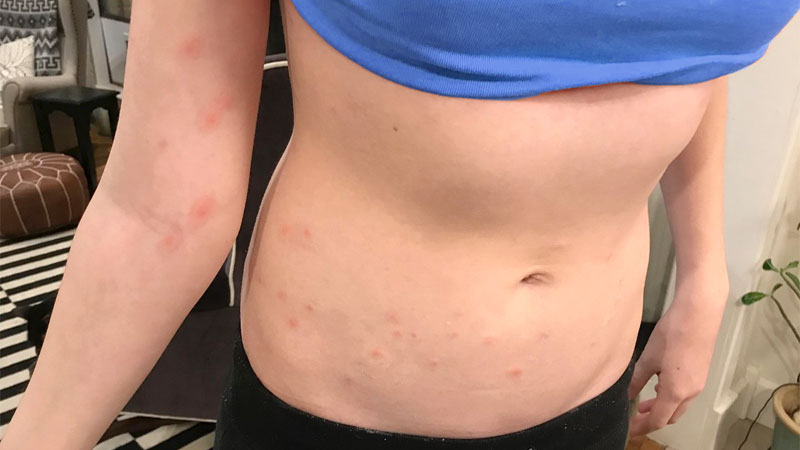
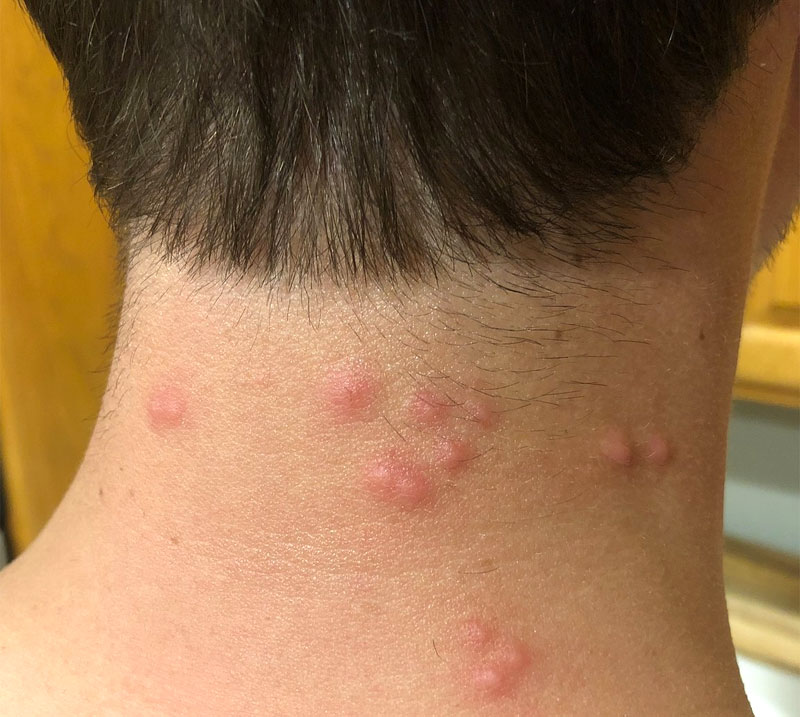
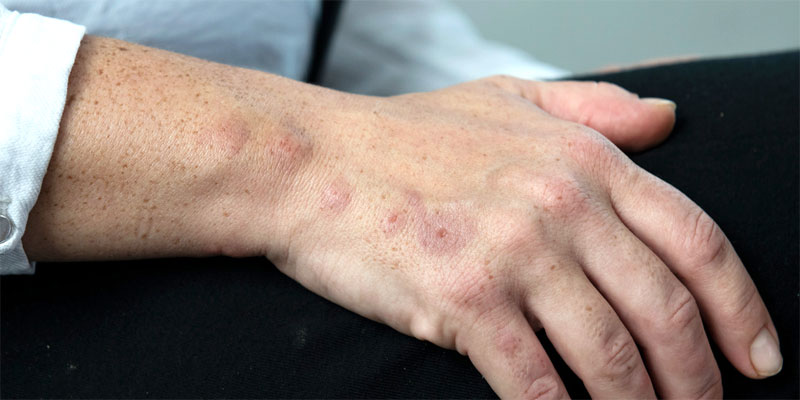
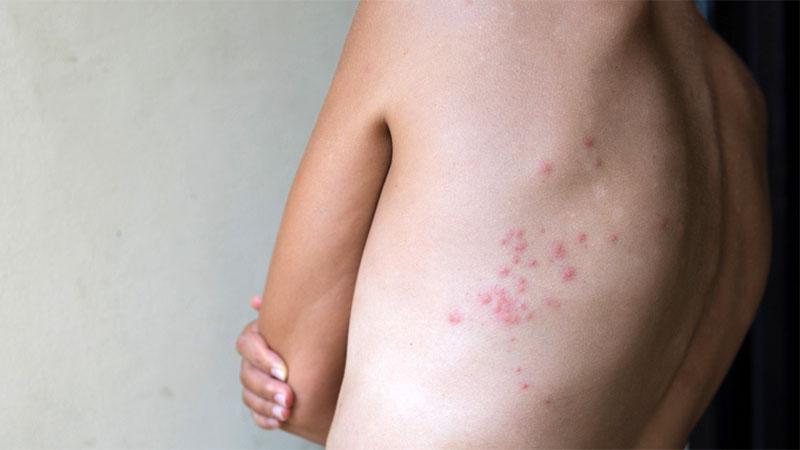
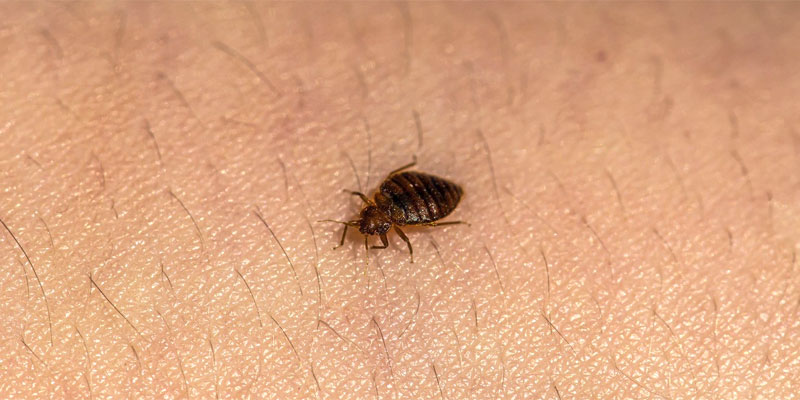
Leaving infested rooms unoccupied is one of the greatest causes of bed bugs spreading. They will hunt you down in other rooms or infest other occupied rooms. This is one reason (there are other causes too) that an infestation can spread through apartment blocks.